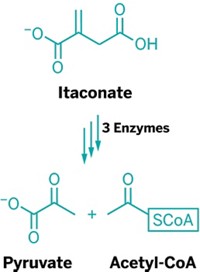Advertisement
Grab your lab coat. Let's get started
Welcome!
Welcome!
Create an account below to get 6 C&EN articles per month, receive newsletters and more - all free.
It seems this is your first time logging in online. Please enter the following information to continue.
As an ACS member you automatically get access to this site. All we need is few more details to create your reading experience.
Not you? Sign in with a different account.
Not you? Sign in with a different account.
ERROR 1
ERROR 1
ERROR 2
ERROR 2
ERROR 2
ERROR 2
ERROR 2
Password and Confirm password must match.
If you have an ACS member number, please enter it here so we can link this account to your membership. (optional)
ERROR 2
ACS values your privacy. By submitting your information, you are gaining access to C&EN and subscribing to our weekly newsletter. We use the information you provide to make your reading experience better, and we will never sell your data to third party members.
Chemical Communication
Bacteria send signals from beyond the grave
Dead cells release protein that turns on resistance pathways in live bacteria
by Celia Henry Arnaud
August 29, 2020
| A version of this story appeared in
Volume 98, Issue 33
Swarming is a type of collective motion in bacteria. But it turns out that moving isn’t the only thing swarming bacteria do together. They also send signals that turn on antibiotic resistance mechanisms that are specific to swarming bacteria. The surprising thing is that the bacteria releasing the signals are dead. Souvik Bhattacharyya, David M. Walker, and Rasika M. Harshey of the University of Texas at Austin have now figured out how dead swarming Escherichia coli release a protein called AcrA when they die (Nat. Commun. 2020, DOI: 10.1038/s41467-020-17709-0). This protein is part of the AcrAB-TolC efflux pump, one of many TolC pumps that the bacteria use to pump drugs out of their cells. The AcrA from dead cells interacts with TolC on the surface of live E. coli and stimulates several defense mechanisms, including breakdown of reactive oxygen species and increased expression of TolC and other efflux pumps. The researchers find that other species of swarming bacteria similarly produce species-specific “necrosignals.” The researchers suggest that such behavior is a form of altruism in which the death of some bacteria can increase the overall survival of the swarm.





Join the conversation
Contact the reporter
Submit a Letter to the Editor for publication
Engage with us on Twitter